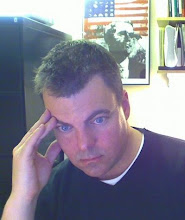The New York Times reports today on how the omnipresence of Blackberries, iPhones, and other wireless communication devices is increasingly playing havoc in jury trials :
Mistrial by iPhone: Juries’ Web Research Upends Trials
These days jurors, like the rest of us, carry these devices. And, just like the rest of us, they look to the internet as their first stop for information. The NYT story describes a recent case in Florida where jurors were found to be researching online the case that they deliberating. Defense counsel in the case, Peter Raben, says that he was "stunned" to learn this. Frankly, I'm suprised this hasn't come up already.
This might seem to be just another example from the "dangers of the wireless world" genre that we've all been hearing for years now. Yet I think that there are actually several different ethical intuitions at play here.
On the one hand, it's no surprise that the judge in the case, William J. Zloch, believed he had no choice but to declare a mistrial. In legal systems that allow for jury trials (which, in practice, is fewer than you might think) juries are sequestered 1) to prevent them from being directly influenced by counsel, agents of the defendant or outside parties (via threats, bribes, etc.), but also 2) to prevent prejudice and allow juries to keep an 'open mind'. Once upon time, the obvious threat to the "open mind" rationale was the news media. No one who cares about justice wants cases to be decided in advance in the editorial pages of the local paper (or, worse, by some pundit on talk radio). Which is why, at least in some jurisdictions, jurors are supposedly kept out of contact with the media during their deliberation.
But jury trials also have another rationale, namely, allowing ordinary citizens to judge the truth of the evidence presented to them. In adversarial systems, supposedly all that jurors are supposed to know about 'the facts' is what is entered into evidence at trial. Yet, when it comes to expert testimony, for instance, I think there might actually be quite a lot of wisdom in allowing juries to double check factual, scientific and technical assertions made by lawyers.
Call it a "right to Google" (or a "right to check what was just said against Wikipedia"). Of course juries must be sequestered--if only for their own protection. And we probably do need rules requiring jurors to surrender their Blackberries for the duration of a trial. But allowing information technology into the courtroom--at the request of the jury, with counsel given the right to object, and so on--might actually be a great boon to justice. In fact, it could be thought of as a technologically up to date version of the inquisitorial powers given to juries in some civil code proceedings.
Subscribe to:
Post Comments (Atom)




No comments:
Post a Comment